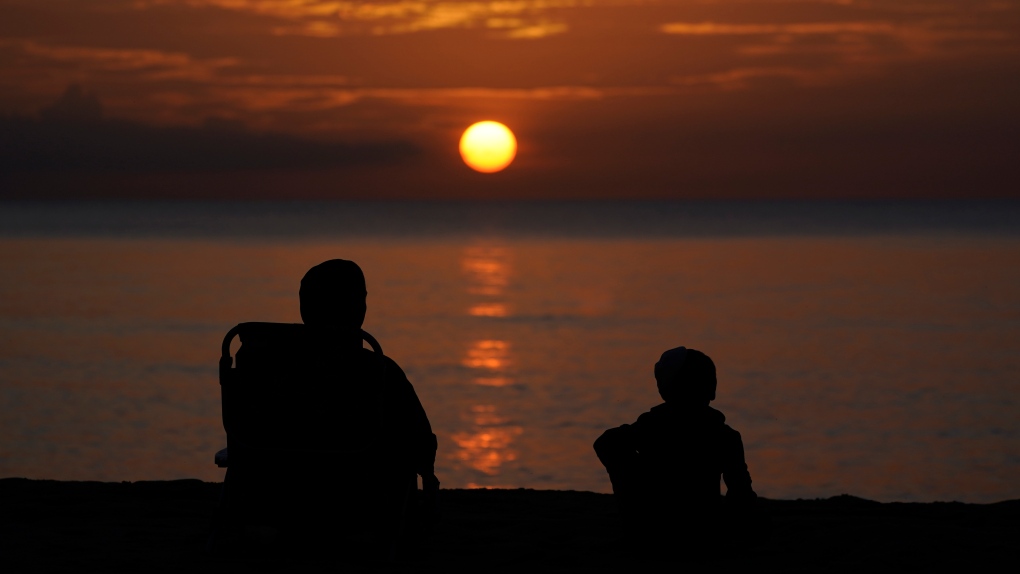
'He's in our hearts': Family and friends still seek answers one year after Nathan Wise’s disappearance
It’s been a year since Nathan Wise went missing and his family is no closer to finding out what happened to him.
A new study suggests the risk of miscarriage may increase in the summer, which researchers say could indicate a link between extreme heat and pregnancy loss.
The study out of Boston University School of Public Health, published in the journal Epidemiology, looked at the seasonal differences in pregnancy data from more than 6,100 survey participants. They found that in North America, pregnant people have a 44 per cent higher risk of having an early miscarriage in the summer than in the winter – in particular, in the month of August in comparison to February. An early miscarriage for the purposes of this study was defined as occurring in the first eight weeks of pregnancy.
According to researchers, up to 30 per cent of pregnancies can end in spontaneous abortion, and up to half of all miscarriages are unexplained.
The risk of miscarriage at any point during the pregnancy was 31 per cent higher in August than in February.
Researchers also looked at geographical data and found that pregnant people who lived in the south or midwest United States, some of the hottest parts of the country, were more likely to experience a miscarriage in late August and early September.
“Any time you see seasonal variation in an outcome, it can give you hints about causes of that outcome,” the study’s lead author Dr. Amelia Wesselink said in a press release. “… Now we need to dig into that more to understand what kinds of exposures are more prevalent in the summer, and which of these exposures could explain the increased risk of miscarriage.”
Researchers said this study filled in gaps in past research, which tends to focus on data from pregnancy losses that occur in care at a hospital, which may exclude data from people who lost pregnancies very early on at home, or people who are not experiencing ongoing fertility issues causing miscarriage and therefore may not have sought care from a medical professional.
The study’s authors suggest that high temperatures may be a contributing factor to pregnancy loss, adding that while more research is needed to understand the possible link, health-care professionals and policymakers can begin to take action now to mitigate the effects of climbing temperatures on pregnant people.
“We know that heat is associated with higher risk of other pregnancy outcomes, such as preterm delivery, low birth weight, and stillbirth, in particular,” Wesselink said. “Medical guidance and public health messaging—including heat action plans and climate adaptation policies—need to consider the potential effects of heat on the health of pregnant people and their babies.”

It’s been a year since Nathan Wise went missing and his family is no closer to finding out what happened to him.
Dozens of Ontarians are expressing frustration in the province’s health-care system after their family doctors either dropped them as patients or threatened to after they sought urgent care elsewhere.
An Ottawa pizzeria is being recognized as one of the top 20 deep-dish pizzas in the world.
Amazon's paid subscription service provides free delivery for online shopping across Canada except for remote locations, the company said in an email. While customers in Iqaluit qualify for the offer, all other communities in Nunavut are excluded.
The fire burning near Fort McMurray grew from 25 hectares to 5,500 hectares over the weekend.
Russia’s President Vladimir Putin began a Cabinet shakeup on Sunday, proposing the replacement of Sergei Shoigu as defence minister as he begins his fifth term in office.
Police are searching for a male suspect after a man was “slashed in neck” on Sunday morning in downtown Toronto and died.
There were some scary moments for several people on a northern Ontario highway caught on video Thursday after a chain reaction following a truck fire.
Health Canada announced various product recalls this week, including electric adapters, armchairs, cannabis edibles and vehicle components.

English, history, entertainment, math and geography: high school trivia teams could be quizzed on any of it when they compete at the Reach for the Top Nationals in Ottawa in June.
An Ottawa pizzeria is being recognized as one of the top 20 deep-dish pizzas in the world.
A family of fifth generation farmers from Ituna, Sask. are trying to find answers after discovering several strange objects lying on their land.
A Listowel, Ont. man, drafted by the Hamilton Tigercats last week, is also getting looks from the NFL, despite only playing 27 games of football in his life.
The threat of zebra mussels has prompted the federal government to temporarily ban watercraft from a Manitoba lake popular with tourists.
A small Ajax dessert shop that recently received a glowing review from celebrity food critic Keith Lee is being forced to move after a zoning complaint was made following the social media influencer’s visit last month.
The Canada Science and Technology Museum is inviting visitors to explore their poop. A new exhibition opens at the Ottawa museum on Friday called, 'Oh Crap! Rethinking human waste.'
The Regina Police Service says it is the first in Saskatchewan and possibly Canada to implement new technology in its detention facility that will offer real-time monitoring of detainees’ vital health metrics.
Just as she had feared, a restaurant owner from eastern Quebec who visited Montreal had her SUV stolen, but says it was all thanks to the kindness of strangers on the internet — not the police — that she got it back.
 A pair of beach goers watch the sun rise over the Atlantic Ocean, Friday, June 10, 2022, in Surfside, Fla. (AP Photo/Wilfredo Lee)
A pair of beach goers watch the sun rise over the Atlantic Ocean, Friday, June 10, 2022, in Surfside, Fla. (AP Photo/Wilfredo Lee)